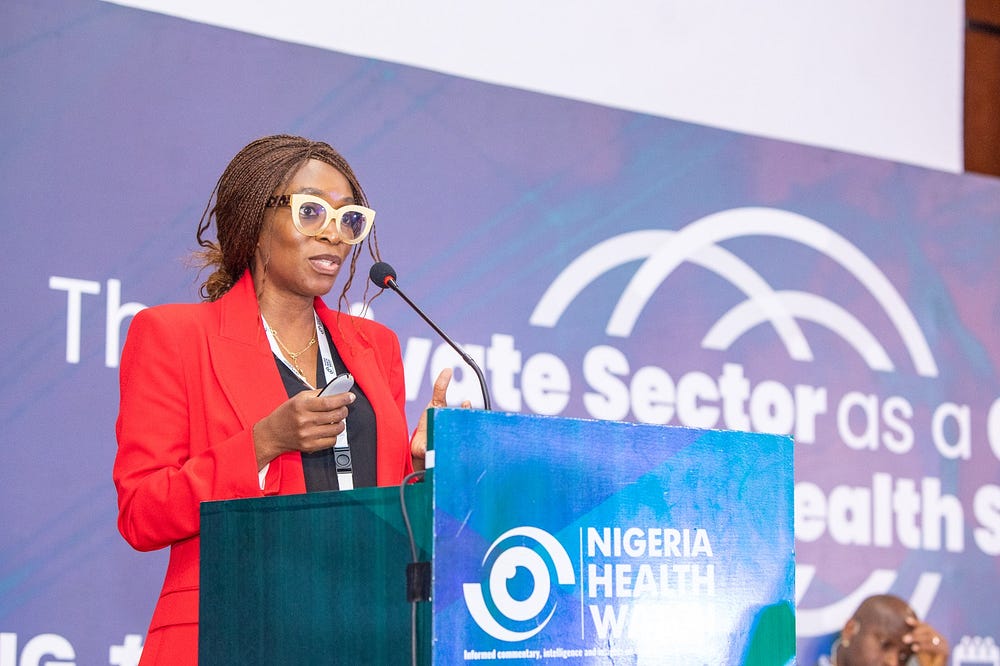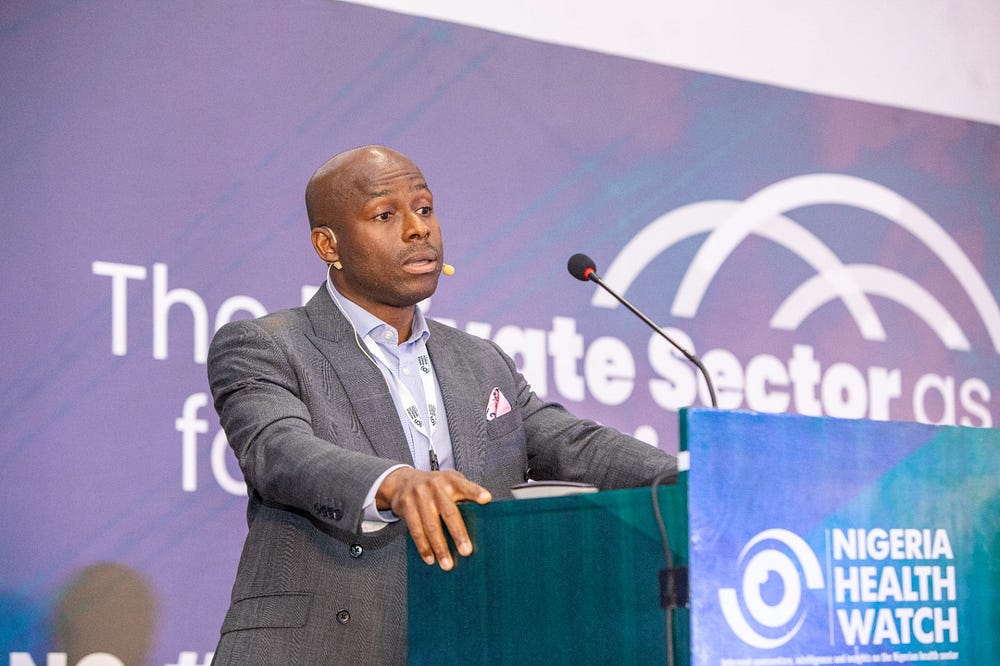By Onyedikachi Ewe
The private sector has played a significant role in delivering maternal and newborn health services, particularly in low and middle-income countries, where public healthcare systems are often poorly funded. Private healthcare providers have been a vital source of healthcare services for low-income families in low- and middle-income countries (LMICs). One in every five births in LMICs takes place in the private sector, while in Nigeria, the private sector delivers more than half of healthcare services, especially to underserved groups. Private sector facilities are often used because of their ease of access, shorter waiting time and perception of offering more respectful care to patients.
In a webinar organised by Nigeria Health Watch in June 2023, themed Building Resilient Maternal Health Systems through Private Sector Integration, stakeholders advocated for more integration of the private sector into Nigeria’s health system. In order to increase the availability of high-quality maternal care, highlighting the critical roles that the private sector can play in maternal health care delivery.
Stakeholders have continued to question why the issue of private sector engagement has not moved beyond the discussion phase to practical implementation for so long. There has not been enough effort to move beyond ‘talk’ to actual integration of the private sector into the health care system.
Why private sector?
During the 2023 Future of Health Conference, titled the “Private Sector as a Catalyst for a Resilient Health System, the private sector’s potential to drive innovation and enhance access to healthcare was highlighted. The private sector is also better equipped to improve maternal health outcomes by increasing access to quality health services, improving healthcare system efficiency and bridging existing gaps in healthcare financing.
The private sector has played a critical role in expanding access to women’s reproductive health services, building technological systems, structures, and innovations and achieving Sustainable Development Goals (SDG) Target 3.1. Engagement with the private sector is therefore critical for the achievement of universal health coverage, SDG Target 3.8, in Nigeria. Efforts to increase access to high-quality maternity care must therefore include both the public and private sector so that every woman can have a healthy pregnancy and safe delivery regardless of where she seeks care.
Partnerships are possible.
The panel discussion highlighted some beneficial partnership opportunities that exist within the private sector such as innovations in technology. “We cannot continue to have mothers die of preventable causes when we have innovation and, so many partnership opportunities to grab a hold of” said Dr Nneka Mobisson. In her presentation, she elucidated how mDoc has leveraged funding and partnerships to provide access to digital health care for women. She elaborated on the comprehensive digital platform called CompleteHealth which allows virtual coaching to mothers who are at risk of chronic diseases. The programme utilises a human health coach and a broader self-care team to support these mothers make specific lifestyle modifications from exercise and nutrition to adherence to medication through their maternal health journey.

Last-mile supply chain distribution was another partnership opportunity highlighted during the panel discussion. In her presentation, Iyadunni Olubode referenced the critical role Lifebank plays in providing on- demand blood supply and blood products to health care facilities. This has supported postpartum haemorrhage (PPH) victims to receive blood for transfusion in record time thereby improving maternal health outcomes. Post partum haemorrhage remains the leading cause of maternal mortality in Nigeria and “from digital technology to supply chain, private sector has expertise that can improve health and development faster, more efficiently and with greater impact.”

Echoing the point on providing specialised care with shorter waiting time, Dr Tokunbo Shitta- Bey demonstrated how Duchess International Hospital broke down the barriers of public private engagement, by cutting down a 6-month wait period for open heart surgery to a few weeks. This was achieved through engagement with the government. “The private sector has a responsibility to construct solutions required to provide quality healthcare to the population”. Dr Shitta- Bey said.

Walking on a tightrope
Private health sector integration presents some challenges like high fragmentation in the private sector, weak governance, and poor regulation and coordination with the public sector. Inadequate monitoring and supervision, possibility of adverse practices due to financial and capacity constraints within the private sector all point to the importance of strong regulatory reforms to mitigate these challenges.
According to Dr Chito Nwana “…government must prioritise policy, regulation, financing, information exchange and public service in harmony with the private sector for a comprehensive health system that ensures quality care and financial security to all Nigerians”. In her presentation, she highlighted some challenges impeding effective engagement. This includes the lack of trust between the government and private sector providers, lack of a policy framework to guide their effective engagement. Further challenges include the perceived lack of political will, resource imbalance and a negative perception of the role of the private sector.

Moving from talk to action
Conversations around private sector integration needs to move from talk to action.
The public sector must be better integrated with the private sector to deliver high-quality maternal health services. These are some insights from the panel session on enhancing integration between government and private sector entities;
- WHO Country Connector: an online resource centre developed by the World Health Organization (WHO) to provide practical support to both government actors and private sector operators on how to engage with each other. It provides tools, information and regulations to government officers on how to govern a one health system for policy engagement and it is an avenue for private sector facilities to share their data with government for decision making.
- Development of institutional and policy frameworks: Robust and comprehensive frameworks and strategic models, designed to guide regulation, incentives and risk mitigation for example, will begin to change the narrative and connote government action of “walking the talk” in private sector engagement. The framework will also create an enabling environment for effective engagement.
- Health care financing: Private sector funding and investments will sustain healthcare delivery, innovations and growth and ensure continued provision of high-quality maternal health care. Government leaders should support the private sector with incentives which include, but are not limited to low interest loans, tax waivers and subsidies on medical equipment and health commodities.
- Strong regulatory reforms: Establishing and enforcing clear guidelines, standards of care and operating procedures, as well as robust monitoring mechanisms will ensure a consistent quality service from private providers and enhance public trust.
- Transparency and accountability: Fostering open dialogue, establishing clear guidelines and expectations, and involving diverse sectors in the decision-making process will help build trust.
- Collaborations: The private sector would benefit leveraging intra-sectoral collaborations like Private Sector Health Alliance of Nigeria (PSHAN) and Healthcare Federation of Nigeria (HFN) towards achieving the unified goal of integrated health systems.


